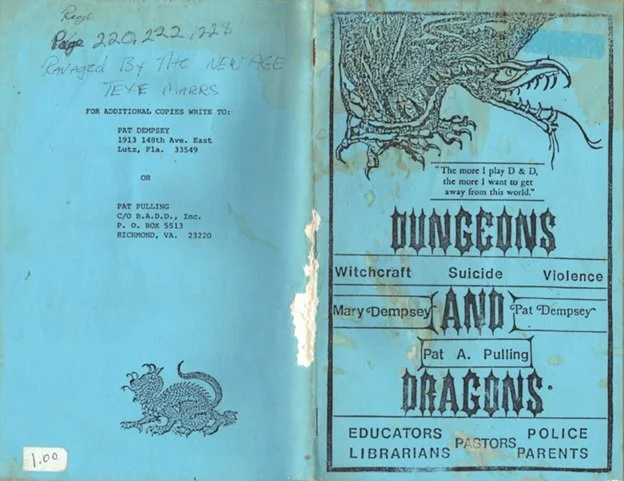History of B.A.D.D. - NOT the Michael Jackson Song
In the 1980s, a group called Bothered About Dungeons & Dragons (B.A.D.D.) was formed to oppose D&D and its supposed negative influences. Patricia Pulling was a prominent member of B.A.D.D. and an outspoken critic of D&D. In this blog post, we will explore the life and legacy of Patricia Pulling and the impact of B.A.D.D. on the D&D community.
Patricia Pulling, a devout Christian, was born on December 28, 1944, in Richmond, Virginia. In 1979, her son Irving committed suicide, and she became convinced that D&D was a contributing factor. Pulling claimed that her son had become involved in a cult that used D&D to recruit and brainwash its members.
Pulling went on to become a prominent member of B.A.D.D. and an outspoken critic of D&D. She claimed that the game was a tool of the occult and that it encouraged players to engage in Satanic practices. She also accused D&D of promoting suicide and murder, citing several high-profile cases as evidence.
A full copy of this can be found HERE at the Internet Archive
Pulling's crusade against D&D led her to write several books and pamphlets, including "The Devil's Web: Who Is Stalking Your Children for Satan?" She later became a director of the National Coalition on TV Violence in 1984.
Despite her efforts, Pulling's claims were widely criticized by the D&D community and debunked by experts in psychology and criminology. By 1991, The American Psychological Association and the American Academy of Pediatrics both issued statements stating that there was no evidence to support the claim that D&D led to suicide or murder.
Despite the lack of evidence, B.A.D.D. had a significant impact on the D&D community. Some schools and libraries banned the game, and some parents forbade their children from playing it. The negative publicity also led to a decline in sales, forcing TSR, the company that published D&D, to lay off staff and restructure.
Pulling ultimately died of lung cancer in 1997, and with that B.A.D.D. effectively ceased to exist.
Today, D&D is widely recognized as a harmless form of entertainment that promotes creativity, socialization, and critical thinking. While we must remain vigilant against genuine dangers, we should not let fear and misinformation obscure the benefits of activities like D&D.




